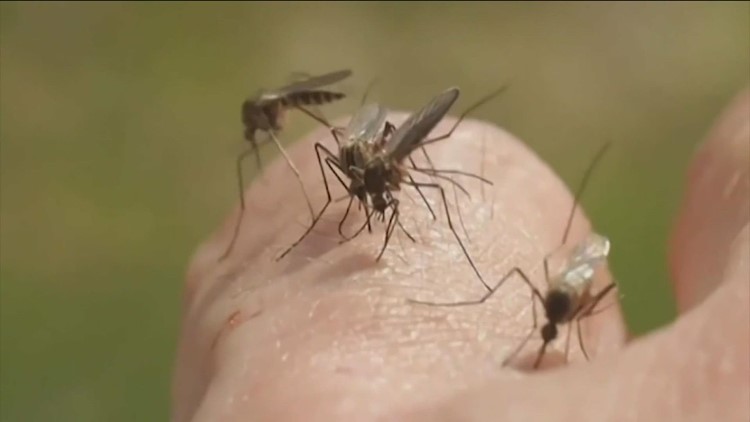BOISE, Idaho — Mosquitoes carrying West Nile virus (WNV) have been detected in Elmore County and Payette County, prompting health officials to issue precautions to the public.
The positive mosquitoes, collected on July 29 by the Elmore County Mosquito Abatement District, are the first ones to be detected in the state this year. Last year, the first WNV-positive mosquitoes in Elmore County were detected on July 27.
"The detection of West Nile virus-positive mosquitoes in Elmore County indicates that conditions are right for transmission of the virus to people," said Dr. Leslie Tengelsen, state public health veterinarian. "This is the time of year when we typically start finding positive mosquitoes and reports of human and horse infections."
During routine surveillance in the Kiwanis Park area, Payette County's Mosquito Abatement Program collected mosquitoes in a trap to test them for WNV on August 2. The mosquitoes tested positive for the virus, producing Payette County's first positive results of the year.
"The positive sample consisted of a pool containing 45 Culex pipiens mosquitoes. The early detection of West Nile virus in mosquitoes is one of the primary reasons for our comprehensive adult mosquito surveillance program," Nikki Harris, the program's manager said. "Furthermore, it allows us to focus our control efforts in areas determined to be at risk for West Nile virus."
In 2021, 14 Idaho counties reported WNV-positive mosquitoes, horses, birds or people. WNV infections were reported in 16 people, 15 horses, and two birds. The virus contributed to two human deaths.
"We strongly encourage Idahoans to take measures against biting mosquitoes," Tengelsen said. "These include wearing insect repellent and protective clothing and reducing standing water around gardens and homes where mosquitoes can lay their eggs."
The Payette Abatement Board said they will be increasing mosquito surveillance and will continue to treat larvae-infested waters. In the surrounding areas of Payette, ground adulticide applications will be made using truck-mounted sprayers.
WNV is not spread through casual contact between people, but can be contracted through a bite from an infected mosquito. Mosquitos mainly get infected by WNV after biting infected birds, which are the primary hosts of the virus
If you feel ill, talk to your healthcare provider about testing for WNV.
Most people that are bitten by WNV-infected mosquitoes either experience no symptoms, or a short period of mild flu-like symptoms. Infections usually begin within 14 days following the insect bite.
Infection symptoms include fever, headache, body aches, muscle and joint aches, fatigue, nausea, and sometimes swollen lymph glands or a skin rash. WNV infections can result in more severe illness, especially for those 50 years and older.
In severe but rare cases, a high fever, neck pain, severe headache, a rash on the torso and disorientation may be an indication of encephalitis (inflammation of the brain).
To protect against getting infected with WNV, healthcare providers advise people:
- Cover up exposed skin when outdoors and apply DEET or other EPA-approved insect repellents to exposed skin and clothing. Carefully follow instructions on the product label, especially for children.
- Insect-proof your home by repairing or replacing screens.
- Reduce standing water around homes and properties. Check and drain toys, trays, and pots that are outdoors and can hold water.
- Change bird baths, static decorative ponds, and animal water tanks weekly to reduce suitable mosquito habitats.
- Door and window screens should fit tight and be in good repair. This will prevent mosquitoes from entering your home.
- Dawn and dusk are times to avoid being outdoors, since this is when mosquitoes are most active.
- Dress appropriately by wearing long sleeves and pants when outdoors and mosquitoes are present.
Domestic animals are not usually affected by WNV, but it can cause severe illness in horses and some species of birds. While there is no vaccine for people, there are several options for vaccinating horses and should be done annually.
More information is posted on the Idaho Department of Health and Welfare's website.
Watch more Local News:
See the latest news from around the Treasure Valley and the Gem State in our YouTube playlist:



